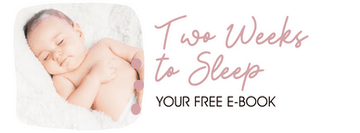
Can you 'train' your baby to sleep?
When I was at university studying developmental psychology we learnt about Pavlov's Dogs.
This quite famous experiment on behavioural science goes along the lines of a man (Ivan Pavlov) who used dogs to explore and prove that a learned behavioural response can become an unconscious physiological response. To do this he began by feeding his dogs at the same time every day and each time he would ring a bell while they fed. After a while the dogs would hear the bell and start salivating before they were even offered the food. The link between the bell and food had been so imprinted in their brains that the sound of the bell triggered a physical response - salivation.
Now, while dogs are, inarguably, different to humans, the same theory holds true when it comes to behavioural cues and responses; our bodies can learn a response in relation to a "trigger".
Pavlov calls these triggers "conditioned responses" but in our field, they're more commonly known as "sleep associations".
So how does this relate to baby sleep?
While I dislike the term "training" when it comes to babies and their sleep patterns, it is true to an extent that babies and toddlers can be "conditioned" to specific responses in their environment that will produce a sleep outcome. You’re not “training” your baby to sleep - sleep is a very primal and biological response - you’re conditioning your baby to a set of circumstances they associate with falling asleep.
This is how it works:
If your baby is constantly receiving the same cues at bedtime, they will learn to associate those cues with sleep and their body will respond by releasing sleep hormones; they will get sleepy and they will eventually fall asleep. In practice, if you rock your baby to sleep, this is their sleep trigger. If your baby has a pacifier while they doze off, this is their sleep trigger. If your baby has a cuddly blankie or white noise playing, this is their sleep trigger. Their body will come to respond to these triggers by entering sleep when they receive their "sleep trigger". It becomes an unconscious response for your baby. Like logical steps in a pattern.
You CAN have a better night’s sleep!
Whatever your current sleep situation, we've got the tools, the information and the personalised support to help you and your little one reclaim those nights.
Choose your Sleep Solution
Can we change the way our babies fall asleep? Absolutely. After the 4 month sleep regression, babies' sleep matures into more organised sleep cycles with full arousal between each one. This means your baby needs to actively go back to sleep again between cycles. If their sleep trigger is a pacifier, or being rocked, they will need this same trigger to fall back asleep. This can result in short catnaps in the day and/or 2-hourly night waking between sleep cycles because your baby requires their sleep trigger before entering another sleep cycle. In order to achieve longer naps and more consolidated nights, babies and toddlers can be "conditioned" towards a new sleep trigger, one that they are able to do or access themselves. We refer to these as "baby-controlled sleep associations" and these would be:
- White noise
- A cuddly or comforter
- A swaddle
- Baby or toddler sleeping bag
- A pacifier if the baby can replace it themselves
- Thumb sucking
By our consistency in using these triggers at nap and bedtime, your baby or toddler will come to strongly associate these cues with sleep, that they will start producing a physiological response... they will fall asleep unassisted! It is often as simple as replacing their existing sleep triggers with new ones and helping them get used to the change through reassurance and guidance (not abandonment and crying!).
This is not "sleep training". This is not training your baby to go to sleep or stay asleep; you are merely shaping or re-shaping the conditions in which your baby learns to expect sleep.
-----------
References:
Pavlov, I. P. (1928). Lectures on conditioned reflexes. (Translated by W.H. Gantt) London: Allen and Unwin.

Receive product and services updates, promotional offers and other marketing communications based.





